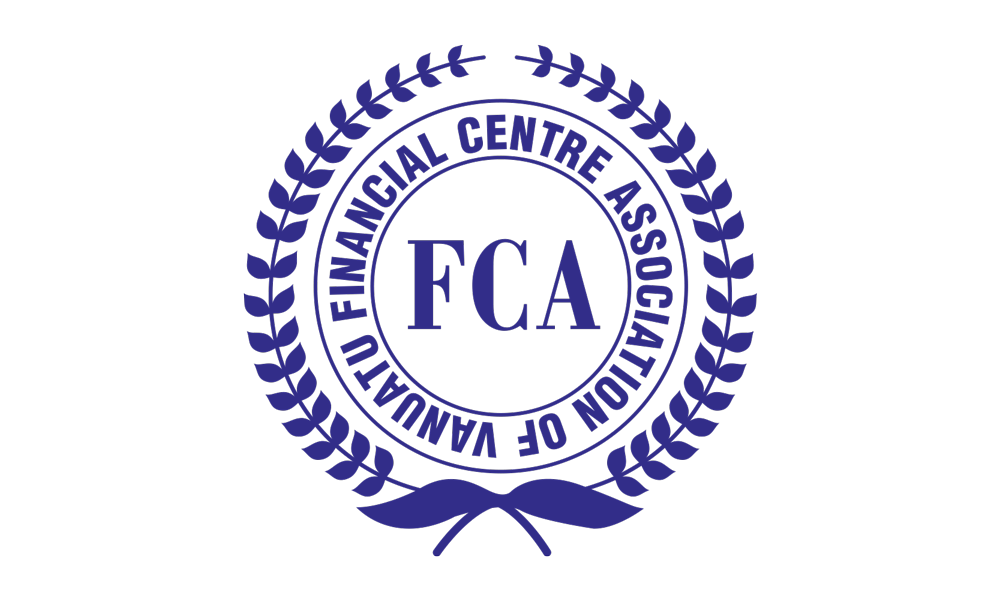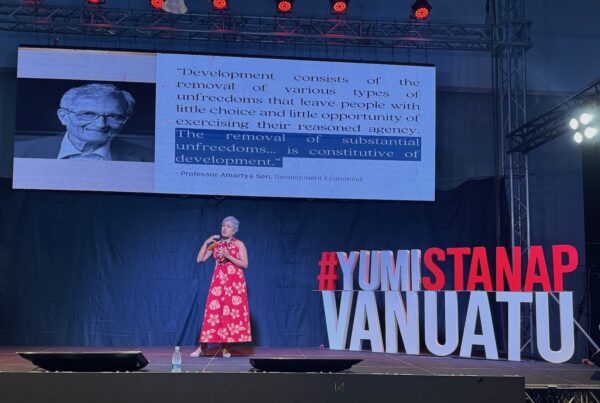Dear Editor,
On behalf of the Vanuatu Financial Centre Association (VFCA) I can confirm that our Association agrees with the government’s objective to invest more funds into the Vanuatu Education system in order to enhance the quality of the education as well as increase the quantity of Ni Vanuatu graduates. The youth are the future of this Nation and investment now will bear fruit in the future.
Extract from Report:
Education and skilled workforce are what separates the rich countries from the poor, and enhancing the level of local schools should be one of the top long‐term strategic goals – See also page 6 of the report.
We also agree that Vanuatu needs to invest in infrastructure and that the Government needs to raise more tax revenue, in absolute terms, in the coming years in order to finance its objectives. The VFCA also supports the initiatives of the government with regard to a fair and balanced review and is in line with the view that Vanuatu must work towards a system that is fair and balanced. Vanuatu must aim to be self‐sufficient and therefore the government has to be able to fund all public expenditures independently.
It is important to take into consideration Vanuatu’s current situation during this tax review exercise:
- Vanuatu’s GDP is too low, the Nation need to create more wealth.
USD 3’100 GDP per capita is extremely low. Therefore, government revenue growth should be based on the growth potential of the economy rather than opportunities to tax current income. In recent years, the service industry has been and should remain the main GDP growth driver. Most jobs are created within the services industry (e.g. hotels, restaurants, airports, retail, etc.), which directly leads to consumption and improvement of living conditions. - Vanuatu’s work force is not qualified enough
As is mentioned in the Report “Identifying Optimal Tax Structure for Vanuatu” Human capital is a scarce resource in Vanuatu. Consistent and efficient investment in Education will help enhance the level and produce highly educated Ni Vanuatu employee candidates in 10 ‐ 15 years. They will become a sustainable engine for Vanuatu’s growth. However, in the mean time, Vanuatu needs to import skilled work force. Since all of the richest economies (such as Singapore, Canada, USA, etc) also participate in global talent acquisition in order to fill the need and to sustain growth in their economy, the economic environment in Vanuatu must be exceptionally friendly in order to compete and attract the best mobile elements available. - Foreign Direct Investment is crucial in order to address points 1 and 2 above
One of the most common ways to boost economic growth is via Foreign Direct Investment (FDI). Foreign direct investment creates local jobs and attracts skilled labour from abroad, which can train the Ni‐Vanuatu population. All countries are constantly trying to attract FDI. In the most direct way FDI brings influx of cash within the economy, which leads to an increase in consumption and increase the wealth of the Nation. The positive effects are then further strengthened by the phenomenon known as the multiplier effect. For example, the construction of a new hotel and proper infrastructure would increase the number of tourists. In turn, that would result in more clients and more revenues for airlines, restaurants, public transport, shops, etc. Hence, in the case of hotel construction, permanent increase in number of tourists would positively affect adjacent industries and would create more opportunities for the local population. Finally, VAT collections would increase proportionately to spending growth allowing government to finance public expenditure. Furthermore, FDI is a perfect way to quickly and efficiently obtain knowledge for the labour force. Each new investment would be followed by multiple trainings for the local population as well as mentors brought from abroad with highly valuable experience.
Income Tax as a solution…
About Income Tax as a way for government to raise more funds to finance Education and other Government objectives, the first step is to assess the current Vanuatu tax system in order to understand the possibilities. You must understand the strengths and weaknesses of the current system before looking at other solutions. Most of the current taxes are based on the user‐payer basis, including VAT, Custom Duty, Excise duty, stamp duty, various licence and registration fees and property tax. Additionaly government collects land rent. VAT is by far the government’s main source of revenue but there are leaks due to non‐compliance.
Summary and statement of opinion
Overall, introducing Income Tax is a luxury that Vanuatu cannot currently afford at this time. At this stage of development it would be a huge burden to public and private organizations, even though it is a politically correct tax, which is easy to promote due to its nature. I will try to explain this opinion below.
- Personal Income Tax.
At the moment, less than 10% of the population is registered with VNPF (~26,000 people). There is a high chance that a significant proportion of these members will be below the tax threshold that would be established if such a project goes forward. Hence, extrapolating from the VNPF data, the number of individuals that will pay income tax is really low and will lead to the taxation of a small pool of highly qualified employees. It will have a negative impact on the attractiveness of Vanuatu for mobile workers and the wages they will ask will increase. As a consequence the cost of goods and services would probably inflate. The price increases would proportionately affect the low‐income earners the most. As mentioned previously, the goal should be not to tax more the current low overall income, but rather to increase GDP growth and collect more in absolute terms. Higher cost for Vanuatu business to attract highly qualified worker is also detrimental to Vanuatu as a destination for foreign direct investment. Personal income tax would be a lot easier and cheaper to implement and control than corporate income tax. However the revenues collected might be minimal in comparison to the negative impact the tax would have on the overall economy (higher cost of doing business for companies and loss of attractiveness for mobile highly qualified worker). - Corporate Income Tax.
We could imagine that all business registered at VAT would have to be registered at an Income Tax office. The cost of collection and control would be significant for the Government; this is basically at least doubling the VAT office. All Vanuatu businesses report their VAT return monthly using the cash basis method. Asking them to report annual income would mean the introduction of accrual accounting, which would be a huge cost for all businesses. Additional hours spent on tax returns will be a waste of the already scare resources of businesses. On top of that, controlling the Income Tax return is a much more sophisticated process than controlling VAT. This means the GVT Income Tax office will have to be staffed with highly educated employees. As explained above highly skilled and educated employees are in short supply in Vanuatu and it is a shame to even imagine using the best of our skilled labour force and the most brilliant students in Vanuatu to become Income tax collectors… to say the least, it is probably not the most efficient human capital allocation scenario. The cost of collecting 100 Vatu of tax might exceed 100 Vatu for some years. The immediate net effect if you account for the cost involved for the tax administration, for businesses (hours and staff involve in Tax reporting), and the Nation, less FDI, less growth, will most probably outweigh the amount collected for few years before it breaks even. Corporate income tax comes hand in hand with Tax Lawyers and various interpretations of the law. There is a realm of interrogation that will follow such implementation, questions like: How do we treat depreciation of assets; is this deductible and are payments made to company overseas also deductible expenses; what about the interest paid on loans, are interest on loans to shareholders treated the same as bank loan; what about amortization of goodwill and royalty payments? Is foreign exchange gain and loss part of the taxable net revenues; is there a rate for capital gain; what about stock obsolescence, can we claim, and doubtful debt provision should be deductable? Etc, this will become a headache overnight for businesses as well as for the Tax Administration. Corporate income tax would be a lot more difficult as well as expensive to implement and control than personal income tax. It will have similar negative effects, however the impact will be greater, since businesses will for sure transfer the tax cost to the consumers by increasing the price of their goods and services. Businesses that cannot pass on their new costs because of elasticity of demand would simply fail and go bankrupt, it will inflate the cost of living in Vanuatu for all (phone, electricity, beer ‐ everything will be affected). It will reduce Vanuatu‘s attractiveness for FDI and will (Ceteris Paribus) negatively affect growth and GDP.
Statement of Independence
I am personally a CA, CPA and I own an Audit and Accounting firm, AJC. The day that the government decides to go ahead with income tax, my business will boom, as this is the main source of revenue for most accounting firms worldwide. My colleagues overseas are very surprised that even without providing on tax returns, my business manages to survive. At this stage, I want to assure that my opinion above is not biased by my work. On the contrary, most of the VFCA members would probably benefit from the introduction of such taxes (the industry has profited from the VAT introduction already).
Why Income Tax is so popular?
Income Tax is popular among politicians because it can bring them votes. The general population would not necessarily read and educate themselves on the subject. Taxing the income of businesses and taxing the revenue of the ones that earn decent salaries seems like the way to go for the 90% who would not pay these taxes. However as explained above, the 90% that consume will pay higher prices for everything they buy to cover this, as businesses will pass on the cost of the taxes onto their clients. This will also negatively affect the growth of the Nation, resulting in fewer jobs for the 90% and less opportunities for their kids in the future. Please check every argument closely as to have an opinion on this subject and so you can make up your mind regarding these taxes.
Conclusions
Vanuatu cannot afford such a costly and sophisticated system right now. Going forward with it will negatively affect the country as well as the Governments Capacity to finance education or other missions of the State. Income Tax will increase the cost of each Vatu collected, meaning that precious funds will be wasted during the collection process. It is also going to negatively affect Foreign and Local Direct Investment by increasing the cost of doing business. The general population will also be affected because the cost increases will be passed on to consumers and the price of goods and services will inflate by at least the tax amount.
We agree that Vanuatu must invest in education, must work towards growth and development, must build a new airport, must fix the roads and must spend on other infrastructure projects. Vanuatu will need to borrow money to go ahead with these types of projects, similarly to all other countries in the world. Vanuatu must raise enough tax to pay for education and health yearly, and to enhance the quality of education and health services. There are a variety of taxes that exist and that could be used, income tax is not the right one for Vanuatu.
Some of the suggestions in the report sponsored by VCCI ‘’ Identifying Optimal Tax Structure for Vanuatu’’ should be considered. The report suggests broadening the current Tax base by increasing compliance and reducing exemption. It also suggests an increase of the VAT rate and an increase of other taxes already in place (Excise Tax, Land duty, Land rent, various government fees, permits and licences fees). Finally, the report touches on the delicate subject of Government underuse of assets and properties; it suggests they should be sold in order to bring funds to the Government as well as stimulate FDI and growth.
Martin St. Hilaire
Chairman
Vanuatu Financial Centre Association





